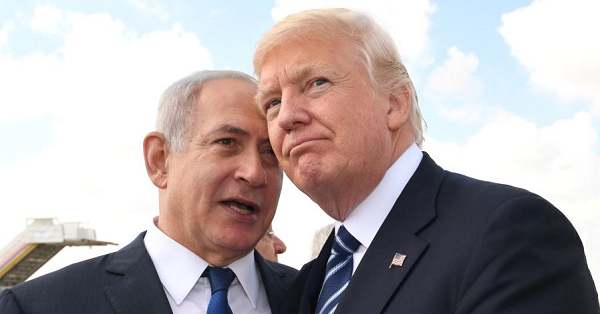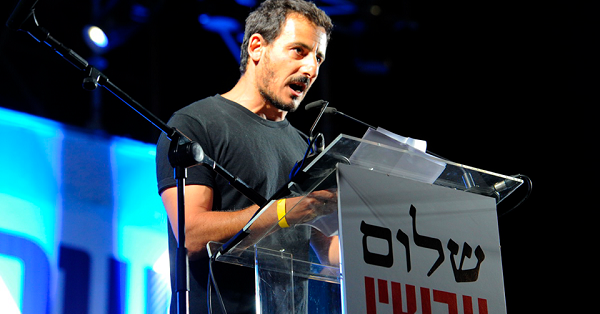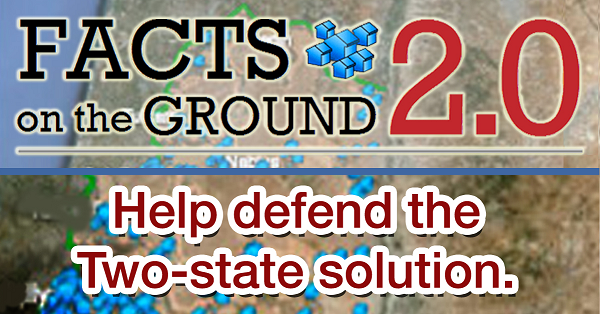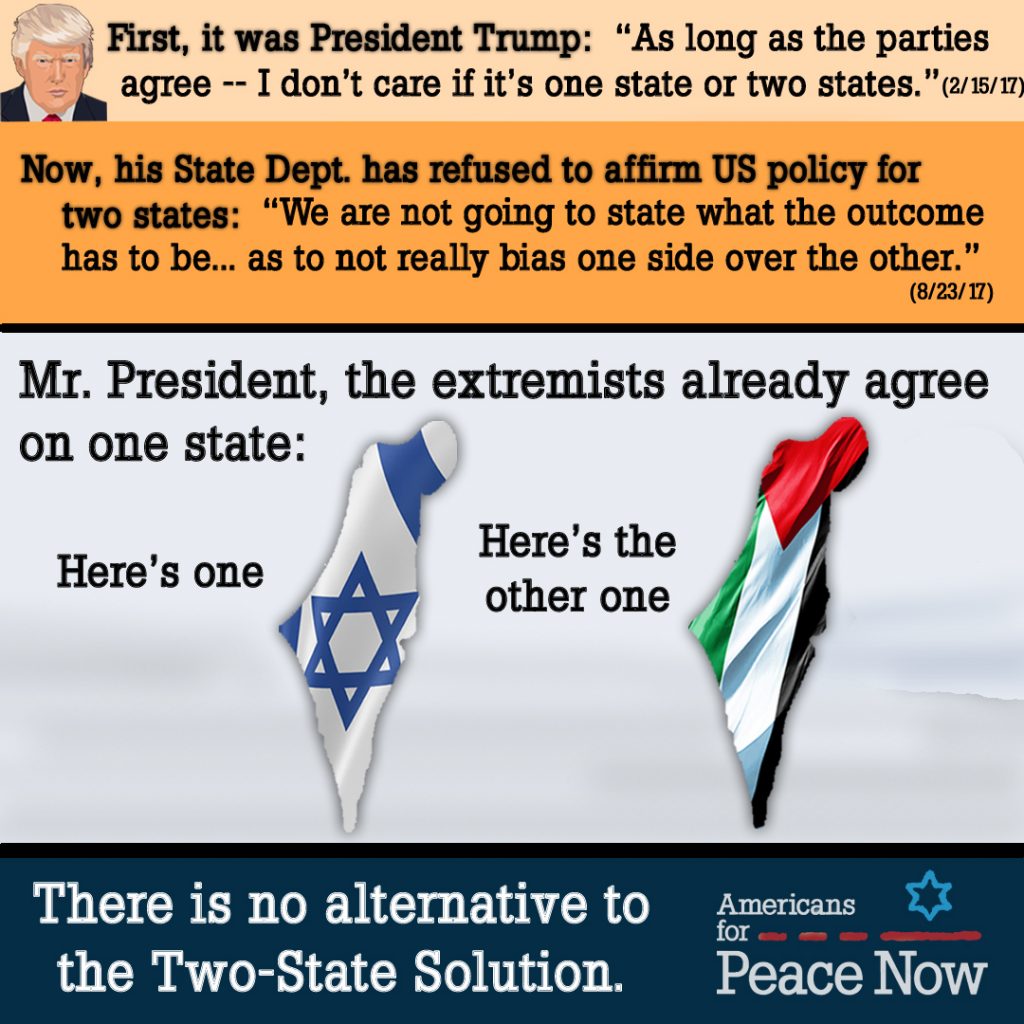American interests will be worse off without two states. But it’s time to consider how we might make the best
of that bad situation.
By Daniel Shapiro, former U.S. Ambassador to Israel
Last week, as President Trump’s Middle East team was preparing to arrive in Israel for another round of preliminary talks with Israeli and Palestinian officials, State Department spokeswoman Heather Nauert offered a rather startling defense of the Administration’s refusal to endorse a two-state solution. She said that to do so would be a sign of “bias.”
She’s right, of course. It would indeed show bias toward the only outcome that can truly serve the interests of the United States—as recognized by three previous administrations—not to mention Israelis, Palestinians, and the Middle East as a whole.
But her remark reinforced a thought I’ve been chewing on since early 2013: maybe it’s time that the United States consider options other than a two-state solution.
Wait. Don’t get the wrong idea. Let me put my cards on the table.
I’ve been supporting the goal of Israel and a Palestinian state living side by side in peace and security since 1988. It hit me early in the days of the first Intifada that there was no other solution, which made me something of an early adopter of that position among advocates for Israel.
I’ve spent 20 years in government service, in two administrations and on Capitol Hill, working toward this goal, advocating, advancing, and protecting efforts to achieve it.
Israeli-Palestinian peace efforts were the single most prominent aspect of my assignments in the Obama Administration at the National Security Council and as U.S. Ambassador to Israel. I can attest to the commitment that President Obama, Secretaries of State Clinton and Kerry, and Special Envoys George Mitchell and Martin Indyk demonstrated to helping Israelis and Palestinians achieve the dream of two states. We were not successful, but I will always be proud to have joined them in this noble cause.
And to this moment, nothing has changed my mind, or my analysis, about which outcome to this seemingly endless conflict is best for the United States, for securing Israel’s future as a Jewish and democratic state, for Palestinians’ legitimate goals of self-determination in a state of their own, and for opening up relations between Israel and the Arab world.




 As the Jewish calendar brings us to the end of another year, I am looking back at an
extraordinary twelve months. The political environment in Israel gives us very little cause for celebration, yet
Peace Now is indeed making a difference. We are confronting the extreme right and the occupation, advancing the
cause of peace and democracy, and keeping the door open for a two-state solution to the Israeli-Palestinian
conflict.
As the Jewish calendar brings us to the end of another year, I am looking back at an
extraordinary twelve months. The political environment in Israel gives us very little cause for celebration, yet
Peace Now is indeed making a difference. We are confronting the extreme right and the occupation, advancing the
cause of peace and democracy, and keeping the door open for a two-state solution to the Israeli-Palestinian
conflict.




